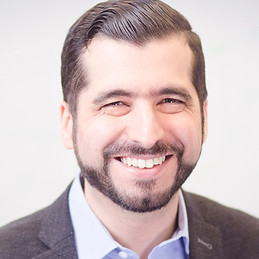
Our Leading Technical Team
Welcome to the nexus of innovation and expertise in Computational Fluid Dynamics (CFD), Finite Element Analysis (FEA) and Computational Engineering. Our team, composed of world-class specialists, is at the forefront of harnessing the power of simulation to decipher the intricacies of fluid flow, structural integrity, and engineering design. Our pool of talented engineering consultants are led by some of the best in the field:
Arman Hemmati, PhD, P.Eng.
Director and Principal Simulation Engineer
Arman is the Engineering Research Chair in Emissions Reduction Technologies and an Associate Professor at the University of Alberta. He is a well-published and registered computational engineer with over a decade of professional experience (since 2009). His area of expertise includes fluid mechanics, fluid-structure-interactions (FSI), Computational Fluid Dynamics (CFD), Finite Element Analysis (FEA), and engineering design. Arman has completed his B.Sc. in Mechanical Engineering at the University of Calgary with distinction. Following his undergraduate studies, he obtained his PhD in the area of Fluid Mechanics, CFD, and FEA. Upon completion of his PhD, Arman joined the Gas Dynamics Laboratory at Princeton University in 2016. Following his successful career at Princeton, Arman joined the University of Alberta in 2018. He has over 100 publications and has presented as a scholar at various prestigious international symposiums and conferences.
Arman is a member of the American Physical Society (APS) and the American Society of Mechanical Engineers (ASME). As a Professor, Arman has instructed several courses in Strength of Materials, Applied Mechanics, Fluid Mechanics, and CFD/FEA. Arman's experiences in the energy industry started at Royal Dutch Shell, where he worked as a Maintenance and integrity Engineer and then Production Technology Researcher for several years. He has gained valuable experience on numerical analysis and design in areas of heavy oil extraction, multiphase flow metering, drilling, down-hole R&D, sour gas processing, in-situ heating, and joule heating. Arman has diverse consulting experience as well, which includes forensic engineering (i.e., PSV failure), energy and environment (i.e., tailing-pond piping slug removal), heat exchangers, drilling and several others.
Muhammad Khalid, PhD, P.Eng.
Principal Simulation Engineer
Muhammad Khalid is an Assistant Professor at the Department of Mechanical and Mechatronics Engineering at Lakehead University. He is also an Adjunct Professor in Mechanical Engineering at the University of Alberta.
He has over 15 years of experience in research, academia, and industrial consultancy in the fields of thermo-fluids, fluid-structure interactions, computational engineering design, and multi-physics simulations. He has a wide experience of working in different countries, including Canada, the USA, China, and Pakistan. He completed his Ph.D. in mechanical engineering at the National University of Sciences and Technology in Pakistan and also worked in the Flow Simulations Research Group at the University of Virginia for his doctoral research. He was a recipient of the prestigious International Exchange Research Fellowship at Peking University in Beijing. Muhammad has published over 60 technical articles in reputable journals and well-recognized international conferences. He is currently serving on the review panels of more than 15 engineering and science journals and publications.
Suyash Verma, Ph.D.
Simulation Engineering Specialist
CFD researcher with over 6 years of experience. Developed propulsive wake models to advance novel hydrodynamic energy harvesters and advanced marine propulsion technologies. The production of thrust or drag on propulsor bodies in motion, which are used for marine applications, is dependent on the intricate interactions between the vortices shed from the body. Understanding the physics behind these interactions reveals novel mechanisms for energy extraction and efficiency enhancements for such propulsive technologies. Open-source software tools like OpenFOAM are being utilized for this research. Development of novel CFD solvers and numerical methodologies for the influence of flexibility/FSI, convective/radiative conjugate heat transfer, etc., is further undertaken. Within my M.Sc. (Aerospace Engineering), I was involved in Computational and Experimental Research in Heat Transfer and Combustion. Project experiences include heat transfer assessment of Convergent Divergent nozzle, Turbulent Combustion, and Instabilities in Rocket thrust chambers, Fuel systems and atomization study, Efficiency improvements, and Reduction in total cost of a system with improved designs. Being an energy resource enthusiast, I also possess experience in Wind turbine systems, principles of turbo-machinery, and blade design in windmills and turbo-fan engines.




